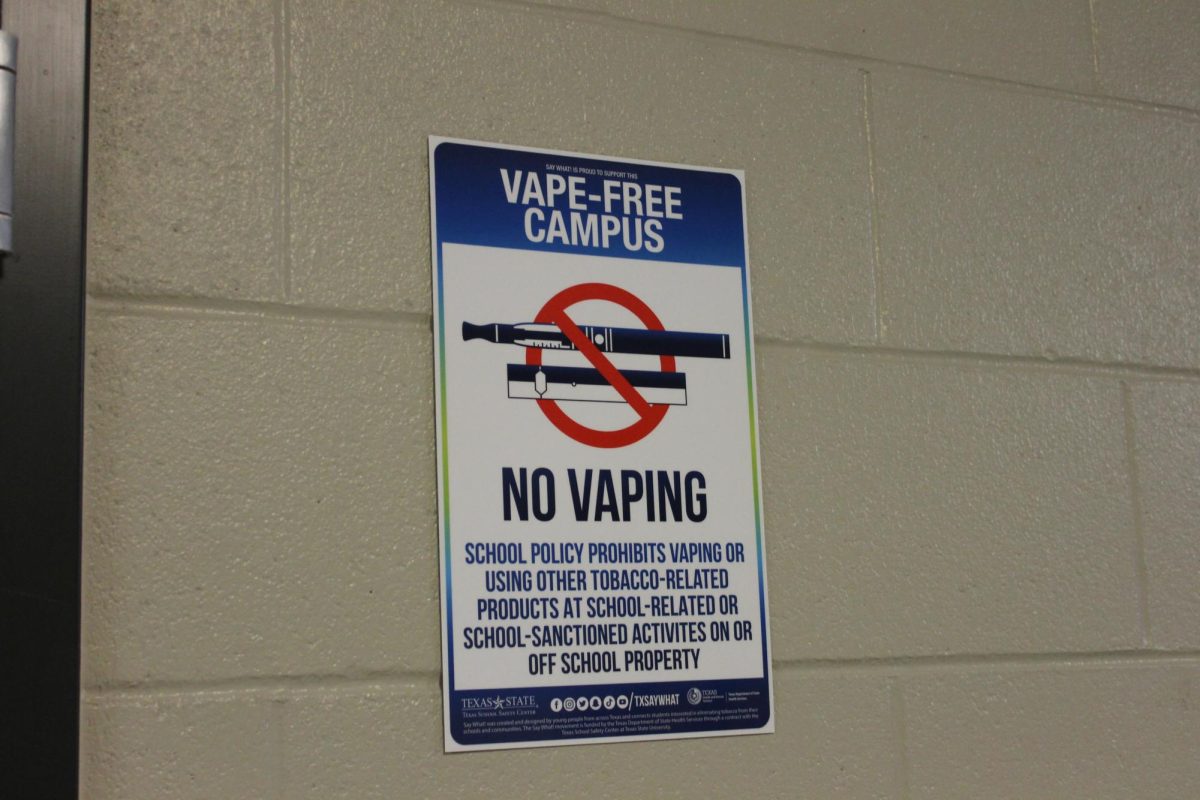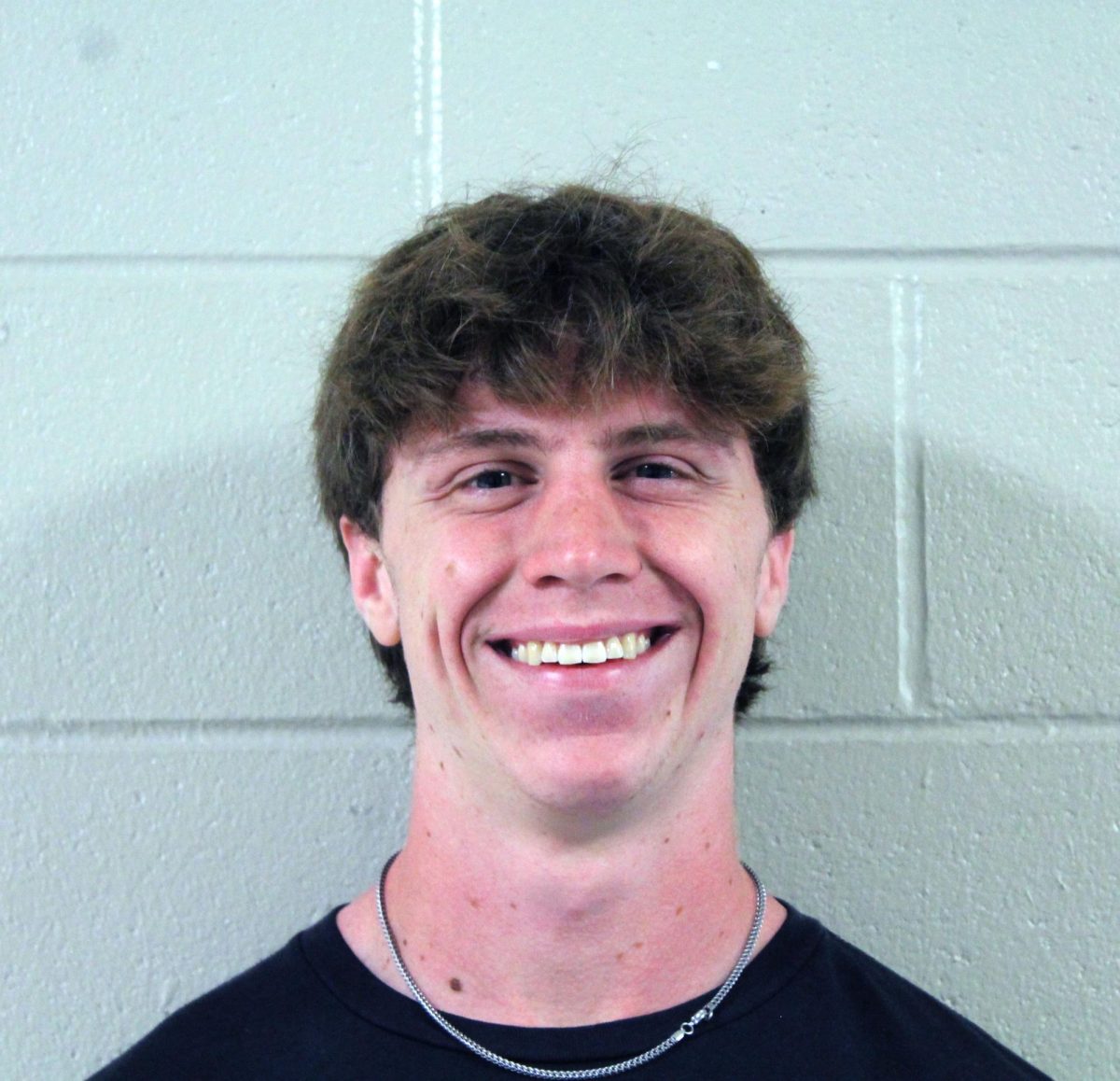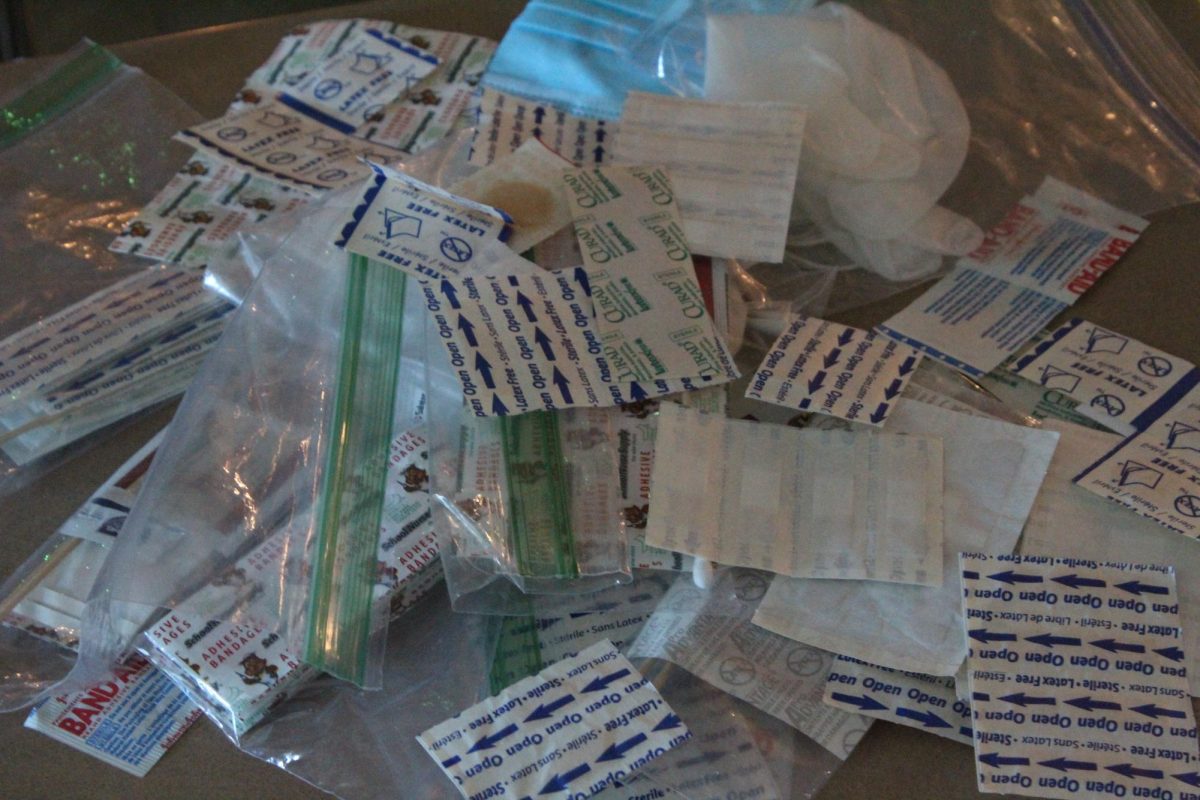To decrease the number of students bringing potentially harmful substances onto campus, vape detectors were installed in bathrooms over the summer.
The detectors have been placed, in part, because of the newly implemented House Bill 114, which states that “A student shall be removed from class and placed in disciplinary alternative education program” if the student is observed with “the use, possession, or delivery of an e-cigarette.”
“Under the new House Bill any student that is caught with a nicotine vape will be sent to DAEP,” Principal Joey McQueen said. “The length of time that student will be sent away is determined by the school.”
If a student uses a nicotine or a THC product in the bathroom, the vape detectors will send a message alerting administrators about the usage of these products on campus. The detectors are targeted toward products such as Cake bars which contain high amounts of liquid THC and can result in a felony.
“We just felt like we (the school) had a problem,” McQueen said. “We had researched other schools and saw that they were using vape detectors, and we asked them how they were working.”
In recent years, with the introduction of electronic vaping devices it has become easier for students to access nicotine and THC, resulting in a drastic increase in the amount of students under the influence of drugs. Section 37.008 of the Education Code states that if a student “possesses, uses, or is under the influence of marihuana on or within 300 feet of school property,” they “shall be removed from class and placed in a disciplinary alternative education program.”
“The main thing we wanted to harvest was the Cake bars, THC — controlled substances,” McQueen said. “They don’t understand what’s going into their body.”
School administrators met with Tyler ISD through a Zoom meeting over the summer to gain information about how the detectors work.
“They said they were working very well,” McQueen said. “In fact, they were seeing the kids getting so scared that when they heard the vape detector going off they would flush them (vapes) down the commode and one of the commodes wouldn’t work. So they got to scope and found 13 of those (vapes) intertwined.”
The detectors detect sound and smells using AI and automatically send text messages to administrator’s phones when any suspicious activity is picked up in campus bathrooms.
“It’s by audio because [it can detect] aggression and gunshots,” McQueen said. “The other one is by smell, so it picks up THC, nicotine and masking, which is if someone vaped and then tried to spray perfume to offset it.”
When the detectors go off, Assistant Principals (APs) and other administration automatically go into the bathroom where the detector went off. When a detector goes off in a girls restroom, administrators will alert a female staff member to go into the bathroom or they will personally wait outside the door.
“If, for some reason, nobody’s in there, we get on the cameras,” McQueen said. “It allows us to see who was walking out of the bathroom at that time, and then we search them.”
If nothing is found on students that caused the detectors to go off, they will be searched with a metal detector by a member of the same sex.
“If we find it, that person will be arrested if it’s THC,” McQueen said.
If the student is caught with nicotine they will be automatically sent to DAEP for 5 days, and 60 days if they are caught with THC.
“They are enrolled in a drug awareness program to educate the students on how drugs affect their body, mind and overall well-being,” director of DAEP Warren Scott said. “We use online software purchased by the district along with other materials to educate.”
McQueen’s wish is for the vape detectors to remove all THC and nicotine products from campus as well as encourage students to not participate in the usage of these products at all.
“I’m the principal of this high school, and people think that we only care about the ones that are doing it,” McQueen said. “No, we care about everybody, but I’m making the point because I have someone in my family who has had this struggle.”
With the fact that electronic smoking devices are more recent there is little data proving what the results will be a few years down the line.
“[Vaping may] feel good now, but what about five or six years later,” McQueen said. “I don’t smoke. I don’t vape, and I just don’t want stuff down my lungs. It can lead you to get addicted to heavier stuff.”
Along with vape detectors to lower the usage of THC products in students, the school also issues random drug tests. If a student tests positive they will continue to receive up to four drug tests and be issued a counselor to help.
“These kids are awesome,” McQueen said. “Their parents are working with them. We do have situations where we have problems, and I hope they (students) would just say that they want to get help and get that help. I don’t want to go to anyone’s funeral.”







